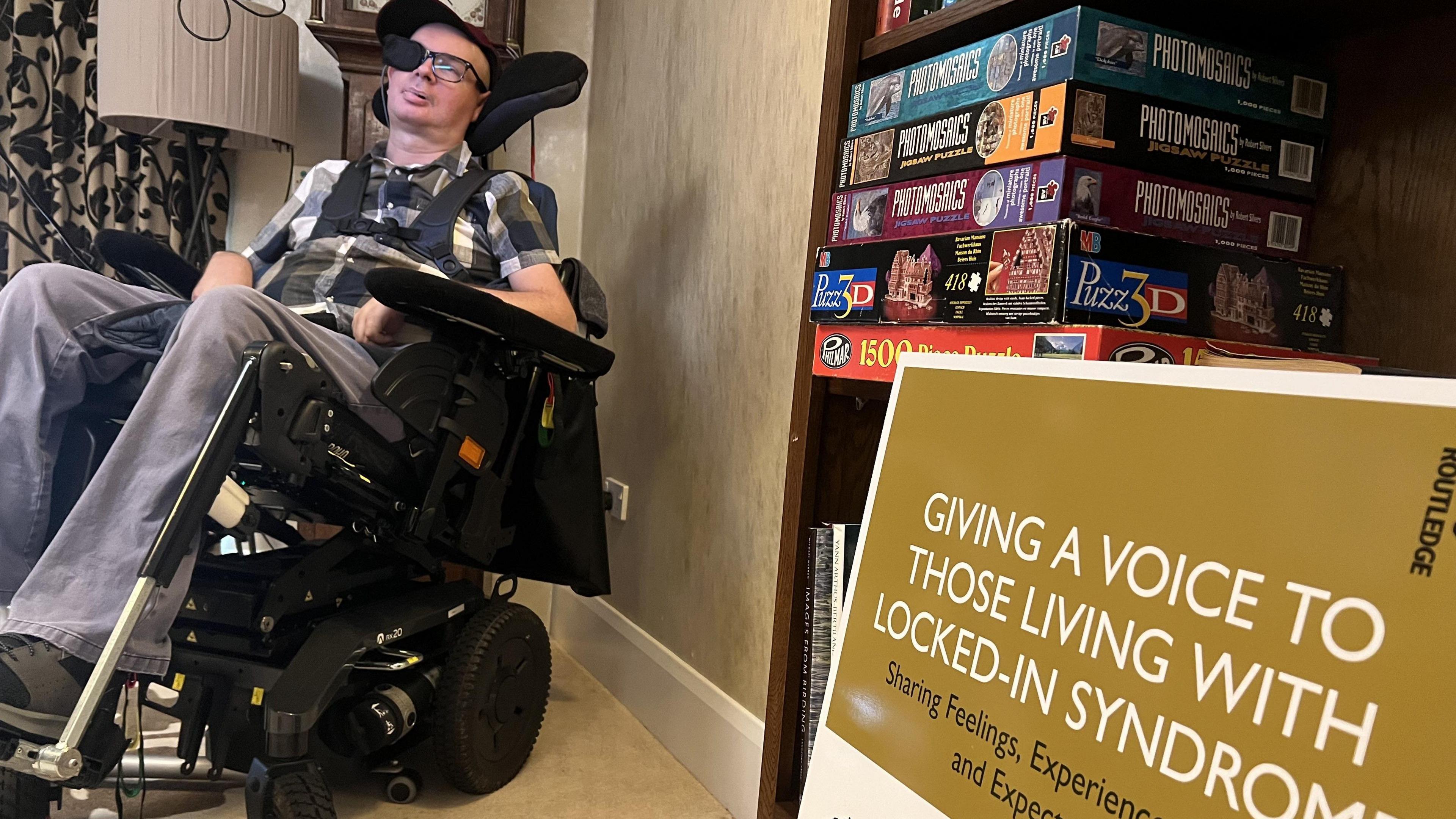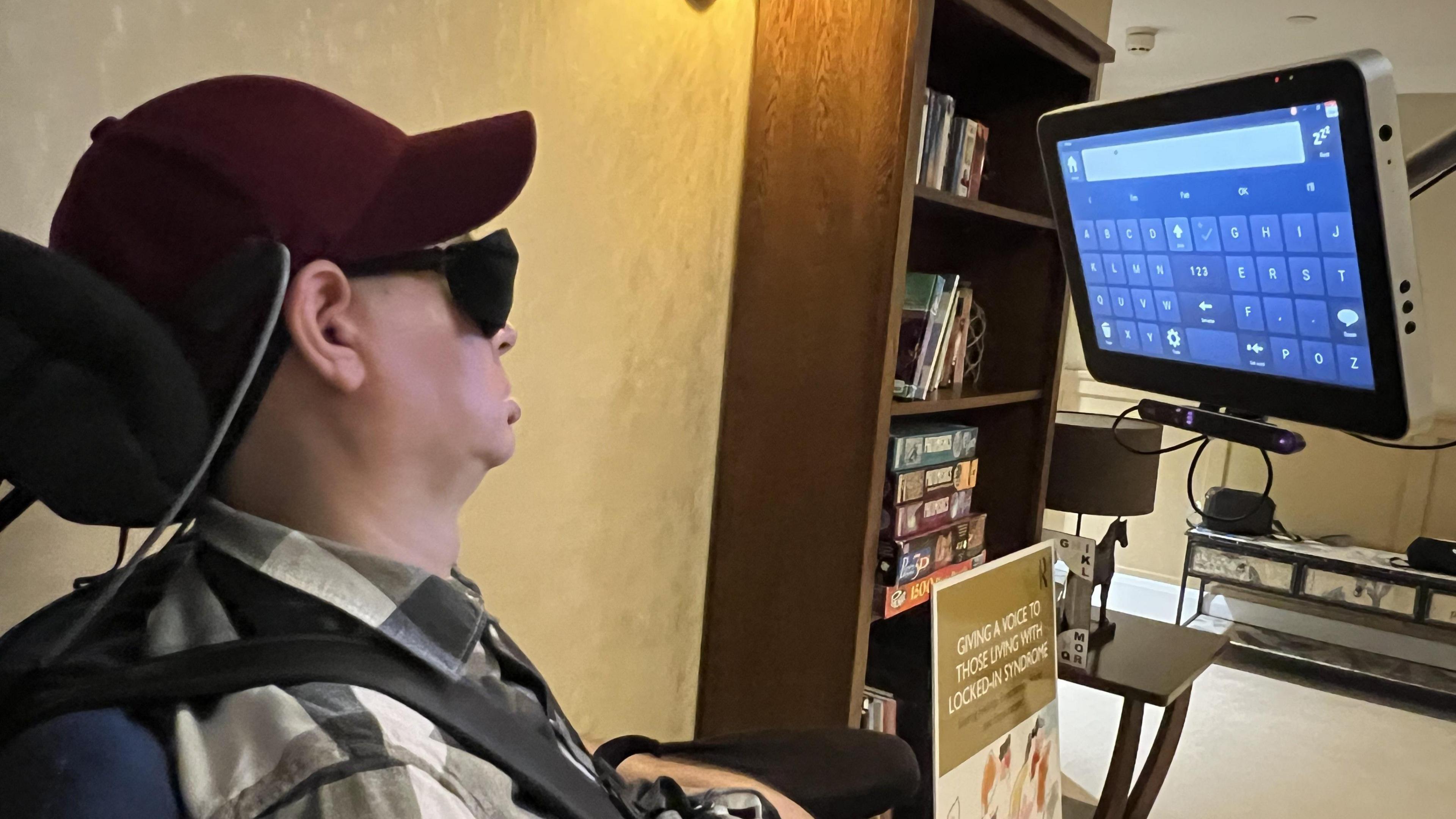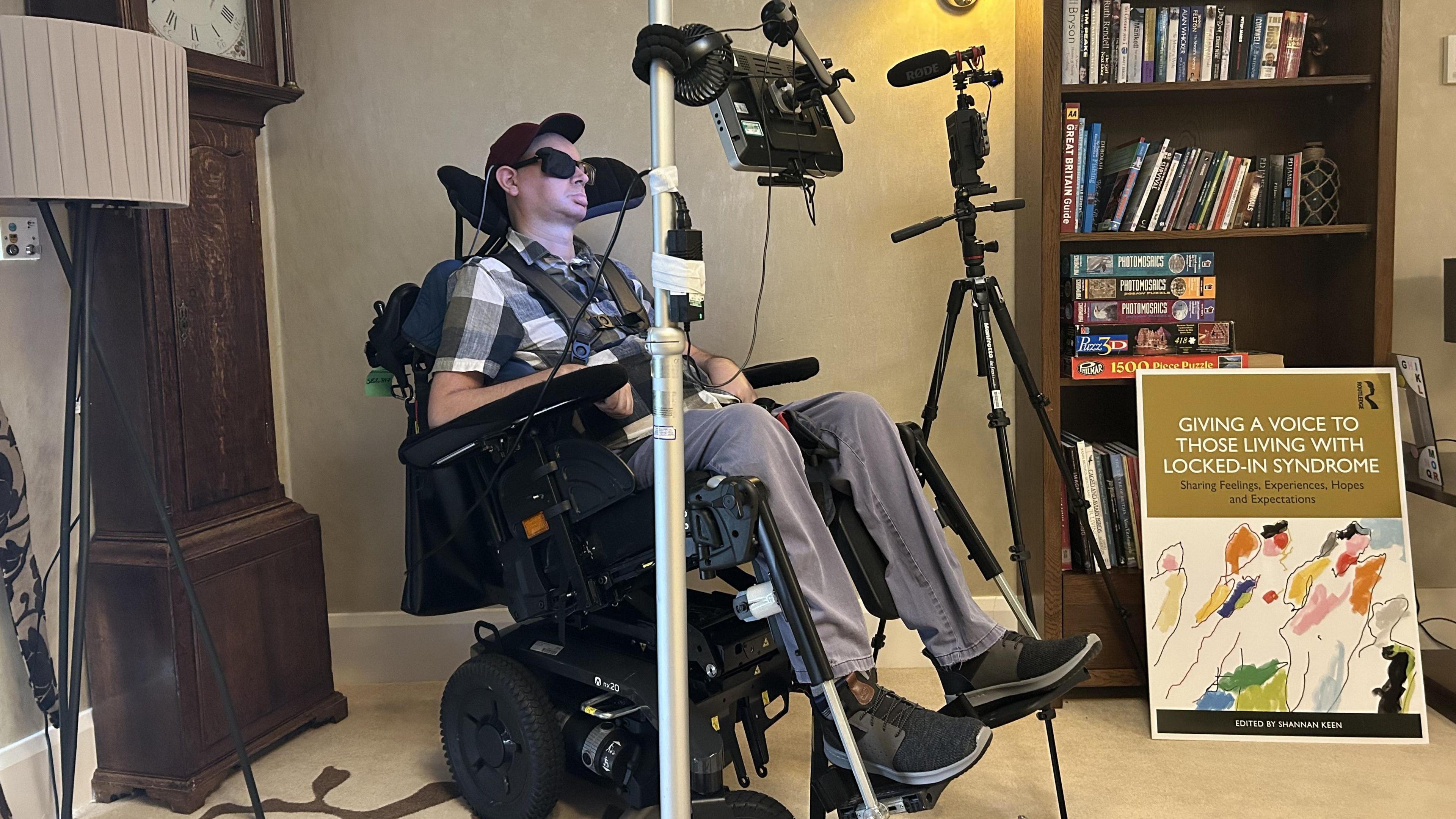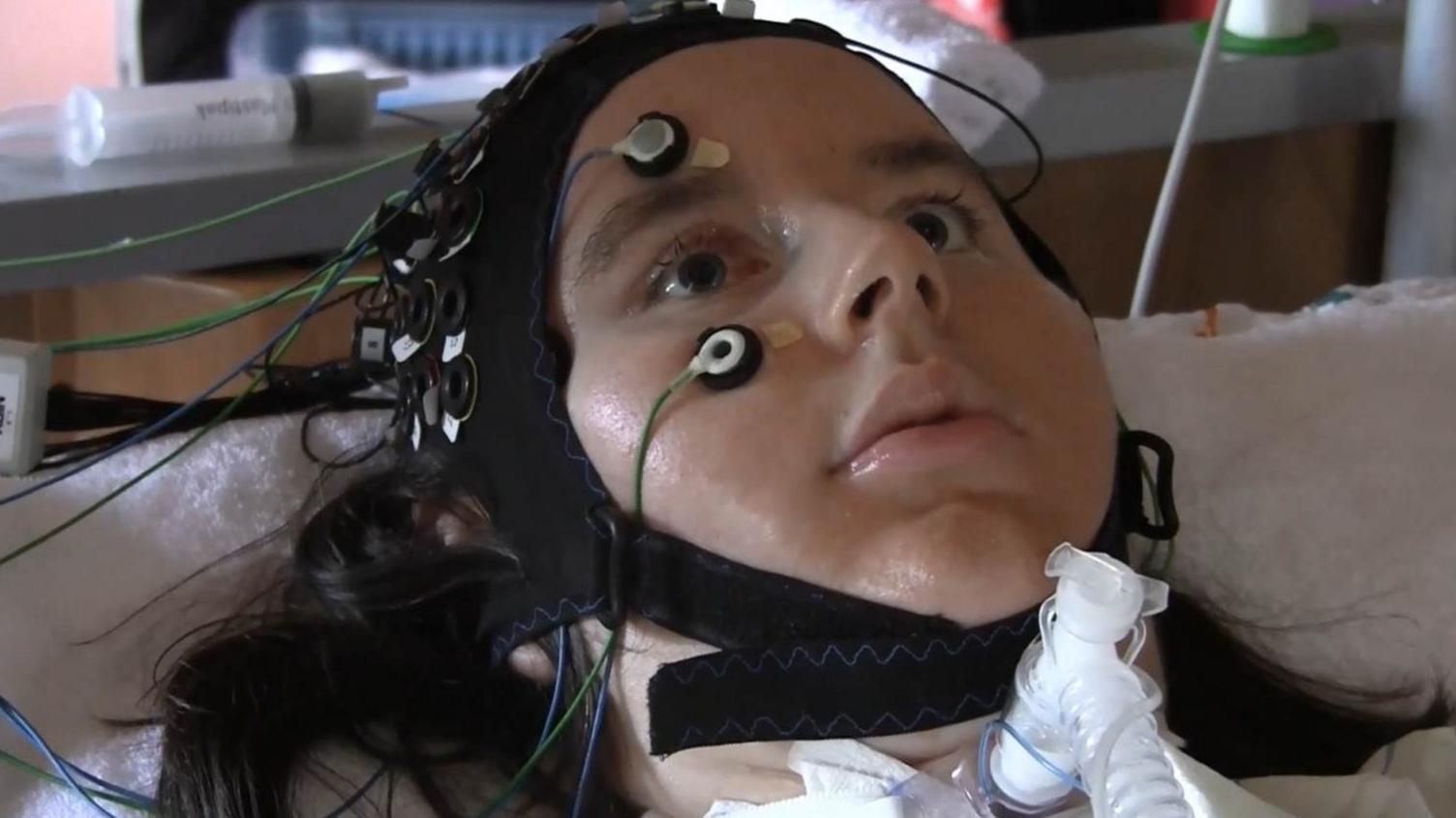Devon man with locked-in syndrome becomes author

Bram Harrison said his diagnosis saw him "emerging from a comatose darkness"
- Published
A man from Exeter who has contributed to a book about living with locked-In syndrome says he hopes his writing "can help future victims of this condition".
Bram Harrison, 48, suffered brain damage after a bicycle accident 27 years ago, which has left him unable to move any part of his body apart from his eyes. He communicates using an eye-controlled computer.
His 5,000-word piece in Giving a Voice to Those Living with Locked-In Syndrome is among pieces from 12 contributors in the book edited by neuroscientist Shannan Keen.
Ms Keen said she hoped the book would educate medical professions about the condition and the care needed and provided, especially in the days after diagnosis.

Bram Harrison who has written a 5,000-word chapter in the new book with his eye-controlled computer
His chapter, called Vicissitude, is about his accident, his diagnosis, and a communication breakthrough with technology.
The rare condition sees patients not able to move any part of their body, although they can feel, hear and see. Often, though, they may be able move their eyes and eye lids.
It has several causes including a stroke, cancer, illness or injury.
Bram explained: "Being diagnosed as having locked-In syndrome, for me, was a great thing. The alternative isn't pleasant.
"Imagine being locked in a tiny box, completely trapped inside an empty building and nobody knows you are there.
"Well, being diagnosed means the doctors know you're in the building.
"I've written about emerging from a comatose darkness; and then, after nine years of silence, using an eye-controlled computer, I spoke to the whole world."

Bram Harrison, who lives in a care home in Exeter, has worked as a local radio DJ
Ms Keen said: "It was really fascinating to read how his life had unfolded; what happened, how he'd been before he had his accident, the feelings that he had during his recovery, and how's he's managed to move forward with his life and create a really meaningful life for himself."
She said she wanted educate those who looked after people with the condition about the importance of support immediately after diagnosis.
She added: "The feeling of desperation and not understanding, A: what's happened, and B: what their future can hold is very difficult; it's a shame that isn't something that's focused on."
Philip Robinson met Bram shortly after his diagnosis and said Bram liked to push boundaries.
He said: "When I first met Bram, I saw a young man struggling to come to terms with what had happened, and then that changed into a young man thinking: 'What can I do now?'
Apart from writing, Bram has been a radio DJ on community radio, calling himself DJ Life Tech.
He also said that legacy was important to him.
He said: "I hope my words can help future victims of this condition.
"I've always wanted my life to be recorded in some way. I didn't think I would be a writer though."
He added he hoped developments in technology would provide more breakthroughs for people with the condition.
He said: "Technology is constantly evolving, opening new possibilities.
"Before my accident, I never really considered the true meaning of the words 'life-changing injury'.
"Now making the most of a complicated life is my main concern."
Follow BBC Devon on X, external, Facebook, external and Instagram, external. Send your story ideas to spotlight@bbc.co.uk, external.
Related topics
- Published1 February 2017
